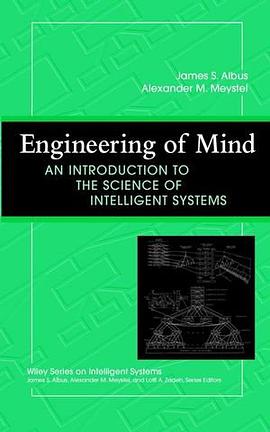

具體描述
Presenting a reference model architecture for the design of intelligent systems Engineering of Mind presents the foundations for a computational theory of intelligence. It discusses the main streams of investigation that will eventually converge in a scientific theory of mind and proposes an avenue of research that might best lead to the development of truly intelligent systems. This book presents a model of the brain as a hierarchy of massive parallel computational modules and data structures interconnected by information pathways. Using this as the basic model on which intelligent systems should be based, the authors propose a reference model architecture that accommodates concepts from artificial intelligence, control theory, image understanding, signal processing, and decision theory. Algorithms, procedures, and data embedded within this architecture would enable the analysis of situations, the formulation of plans, the choice of behaviors, and the computation of uncertainties. The computational power to implement the model can be achieved in practical systems in the foreseeable future through hierarchical and parallel distribution of computational tasks. The authors' reference model architecture is expressed in terms of the Real-time Control System (RCS) that has been developed primarily at the National Institute of Standards and Technology. Suitable for engineers, computer scientists, researchers, and students, Engineering of Mind blends current theory and practice to achieve a coherent model for the design of intelligent systems.
著者簡介
圖書目錄
讀後感
評分
評分
評分
評分
用戶評價
相關圖書
本站所有內容均為互聯網搜索引擎提供的公開搜索信息,本站不存儲任何數據與內容,任何內容與數據均與本站無關,如有需要請聯繫相關搜索引擎包括但不限於百度,google,bing,sogou 等
© 2025 book.quotespace.org All Rights Reserved. 小美書屋 版权所有




















